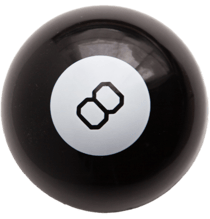
The One Secret Sales Enablement Upgrade To Change Your World Forever
You Can Implement This Change Today And Start Closing More New Customers Tomorrow
 People always ask us how they can get more leads. Then they ask us how their salespeople can be more efficient and close deals faster. But when we start to do our diagnostics and apply our software to really see how to move the needle, there is one area of the traditional funnel where we can have big impact.
People always ask us how they can get more leads. Then they ask us how their salespeople can be more efficient and close deals faster. But when we start to do our diagnostics and apply our software to really see how to move the needle, there is one area of the traditional funnel where we can have big impact.
Just because your prospects are asking for your proposal, agreement or recommendation doesn’t mean you’re getting a new customer. But you worked hard to get them down into the bottom of your funnel, and it would be a shame to lose them now. So the one big sales enablement secret we’re going to share with you today is….
Take a long, hard look at your paperwork. Make sure it doesn’t make these common mistakes. If it does, changing it is quick and almost always relatively easy. And changing it is guaranteed to drive an increase in your close rate and a decrease in the length of your sales cycle.
Here’s what to look for when you look at your current paperwork, proposals, agreements or contracts.
Is This About You Or About Them?
I’ve seen hundreds of these documents: spreadsheets, presentation decks, Word documents and even fancy documents created by proposal software. In almost every scenario, the first mistake is that the content is all about you. It specifies how long you’ve been in business, how many people you have on staff, your technical expertise, your certifications, your awards and your client testimonials. While this is important, it's not the most important.
Worse, most of the stuff I see starts with this. Big mistake. In fact having most of this is unnecessary and irrelevant to the conversation you want to be having with your prospect, which should be about how you help them. Ninety percent of the content should be about that, and that content should be first. Only 10% of the content should be about you, and that content should all be at the back end of the document.
Lead with how you can help the prospect. In a 50-slide deck, 5 slides should be about you and 45 slides about them. Keep those ratios in mind. (By the way, most of the information about you is available on your website, so there’s no need to put it in your documents anyway.)
How Legal Is it?
 Legalese is scary. Legal jargon makes businesspeople nervous. If you send me a legal document to sign and I don’t understand it or don’t feel like I can easily deal with it, then I’m going to delay or worse, bring in my legal team. Everyone knows how long it takes once legal gets involved – try five times as long.
Legalese is scary. Legal jargon makes businesspeople nervous. If you send me a legal document to sign and I don’t understand it or don’t feel like I can easily deal with it, then I’m going to delay or worse, bring in my legal team. Everyone knows how long it takes once legal gets involved – try five times as long.
The question then becomes, does it really need to be so legal and complicated? If the answer is “yes, our business requires us be legally accurate and protect ourselves,” then consider sending the legal agreement separately after they agree to all the business terms and conditions.
But if you really don’t need the legalese, my advice would be to take it out entirely. Companies get a sense of how easy it’s going to be to do business with you from the sales process. If you send them a 30-page legal agreement, they’re going to get nervous and wonder if your company is litigious.
Is It The First Time They’ve Seen It?
If you’re running a sales process designed in 2018, then you already know that no prospect should be surprised by the content in your proposal, recommendations deck, agreement or contract. You should have discussed this with them in advance. You should have shared some samples with them in advance. You should have told them what to expect, and you should have been working with them all along to co-create the recommendations, so when they get them, it’s something they’ve seen, talked about or were expecting. No surprises.
Are You Sending It Or Walking Them Through It?
 Prospects get nervous when they see your content or documents for the first time. You can either let them be nervous until you catch up with them to explain the elements they don’t understand, or you can be there with them when they go through your paperwork and personally assuage any concerns or fears right there, so they never become issues.
Prospects get nervous when they see your content or documents for the first time. You can either let them be nervous until you catch up with them to explain the elements they don’t understand, or you can be there with them when they go through your paperwork and personally assuage any concerns or fears right there, so they never become issues.
Which option do you think is going to provide the prospect with a better experience? Which one is going to help them feel safer? Which gives you the best chance to secure the new customer?
Most of the time, this document is how you put your entire conversation to paper. It might have been one or two conversations over the past few weeks, or it might have been 20 conversations over the past six months. Your prospects rarely remember everything you said, and they rarely heard it exactly the way you said it. This document is your big chance to reset any expectations and clarify, in writing, exactly what you’re committing to and when.
I don’t think people really understand what’s going on. Most salespeople consider this just dotting the i’s and crossing the t’s, but this is where you can lose your deal and lose it fast. You are still competing. Your prospects will likely have three documents on the desk in front of them, and they’ll be comparing them and talking about which company to hire.
They’ll be using these documents to remind them of the conversations they’ve had and the experience you walked them through. If your experience was remarkable, you might have a chance to stand out, but your document also has to stand out dramatically.
These improvements will give you a better chance of closing more clients faster and more frequently. The power of redesigning this stage of your sales process is almost always underestimated.
If your current close rate on these opportunities is 20%, simply taking it to 40% means doubling the number of new customers. Taking it to 60% means tripling the number of new customers each month. These numbers are not unrealistic, depending on your specific situation. Even if your close rate is just 10%, taking it to 20% also means doubling the number of new clients and doubling the monthly revenue. This is powerful and important work if revenue generation is your challenge.
Square 2 Marketing – Revenue Is Earned With Experience, Methodology And Insights!

CEO and Chief Revenue Scientist
Mike Lieberman, CEO and Chief Revenue Scientist
Eliminate Hit-or-Miss Marketing Moves
Get advice, tips, tools and guidance to generate more leads for your company in this weekly email newsletter.



Eliminate Hit-or-Miss Marketing Moves
Get advice, tips, tools and guidance to generate more leads for your company in this weekly email newsletter.













